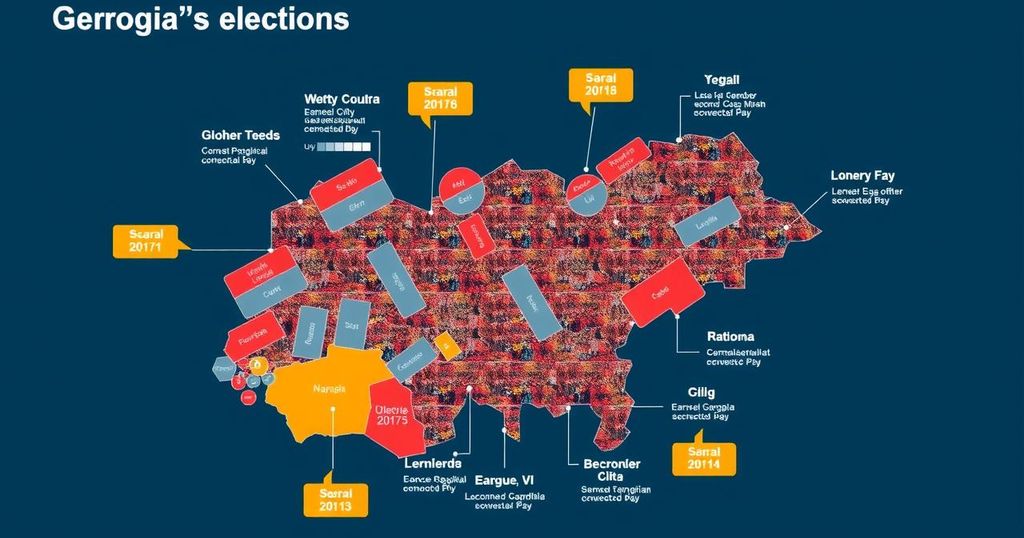The Crucial Choice: Georgia’s Parliamentary Election and the Influence of Russia

Georgia is approaching a pivotal parliamentary election on Saturday, which will determine the nation’s alignment between Western ties and closer relations with Russia. The ruling Georgian Dream party focuses on stability, while opposition parties express concern over increased Russian influence.
On Saturday, voters in Georgia will participate in a crucial parliamentary election deemed the most significant since the nation achieved independence from the Soviet Union in 1991. This election is pivotal as it will determine whether Georgia will maintain its longstanding alignment with Western nations or pivot towards a closer economic and political relationship with Russia. The ruling party, Georgian Dream, asserts its commitment to keeping the nation out of conflict, while opposition liberal groups contend that the current government is steering the country towards increased dependence on the Kremlin. This electoral decision carries substantial implications for Georgia’s future direction, particularly in relation to its geopolitical stance and domestic policies. As the electoral process unfolds, the international community closely watches the developments in Georgia, with concerns about the potential for Russian influence to reshape the country’s democratic framework and foreign relations. The outcome of this election could either solidify Georgia’s ties with Western allies or catalyze a shift towards Russia, impacting regional stability and the balance of power in Eastern Europe.
Georgia, located at the crossroads of Europe and Asia, has historically sought to align itself with Western nations following its independence in 1991. However, the geopolitical landscape has shifted, with Russia attempting to assert influence over former Soviet states. The current parliamentary elections serve as a critical juncture for the country, potentially affecting its foreign policy trajectory and internal governance. The Georgian Dream party has governed in favor of maintaining stability amidst external pressures, but the opposition warns against the risks of deepening ties with Russia.
In summary, the upcoming parliamentary election in Georgia represents a critical decision point for the nation’s future, with ramifications for its alignment in the ever-evolving geopolitical landscape. Voters face the profound choice of preserving their Western affiliations or succumbing to Russian influence, which could redefine Georgia’s political and economic landscape for years to come.
Original Source: www.washingtonpost.com








